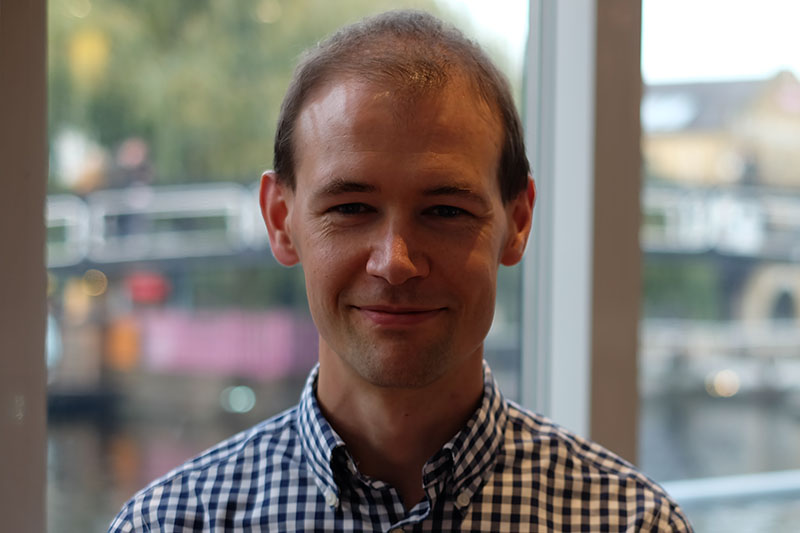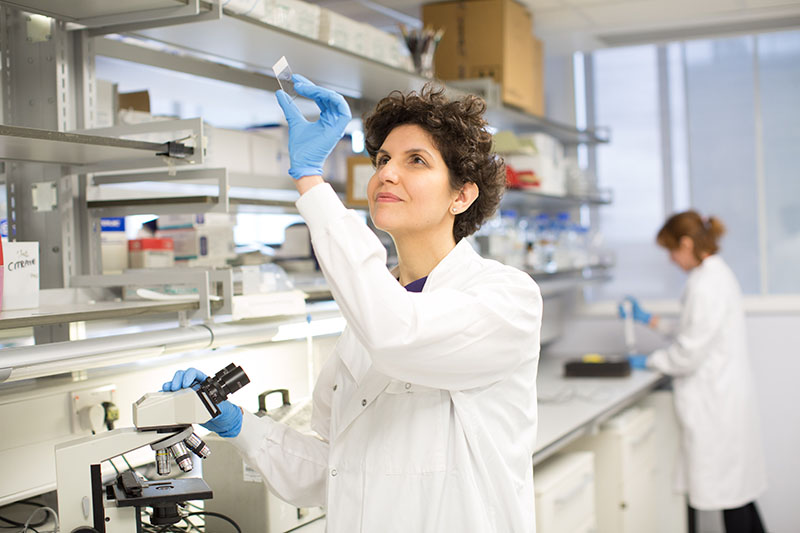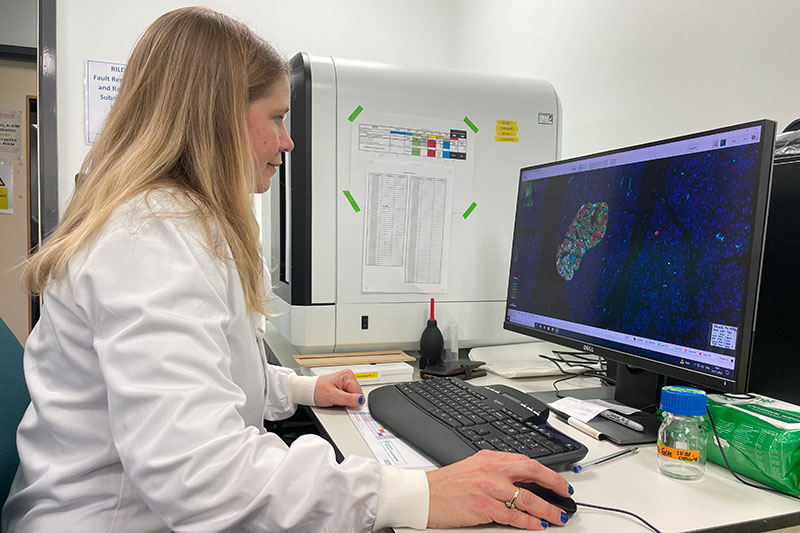How has your Senior Research Fellowship been progressing so far?
Vicky Salem
“We’ve only just started work on the project, but so far, we’ve recruited the most fantastic group of PhD students and postdocs who come from a range of different scientific backgrounds – biologists, biochemists, material scientists and chemists. Together we’ve already managed to grow blood vessels from cells that have been taken from a patient with type 1 diabetes, giving us a single blood sample.”
“We can extract some cells from that blood sample and grow them in the lab and then use those to build brand new blood vessel networks outside the body. This is the start of the skeleton or the backbone we need to introduce the islets to, to then re-transplant them back into that patient.”
“It’s hugely exciting. We can actually see blood flowing through the blood vessels we’re growing in the lab. This kind of an advance applies not only to people with diabetes, but to all sorts of other regenerative medicine approaches.”
James Cantley
“The fellowship has been really helpful in protecting my time and has given me the ability to focus on research fully.”
“The kudos and publicity surrounding the announcement of the Grand Challenge funding has helped me succeed in recruiting three great people to my team, including a research technician, postdoc and PhD student. Advertising the roles as part of the Grand Challenges attracted high quality international candidates with essential skillsets.”
“I’m very excited to begin the next steps.”
Sarah Richardson
“It’s been very exciting to get started! We’ve recruited some amazing people to our team, the new postdoc and research technician have both really hit the ground running.”
“Together we’ve made a lot of progress, preparing for large-scale imaging analysis and making sure everything is in place for future work. This included upgrading our setup so that up to 10 people can use the software at the same time, both in the lab or remotely. Previously only two people could use it at once and they had to be physically in the lab. This really is a huge step forward!”
“We’ve also collated pancreas images from biobanks around the world, including some very rare samples, allowing us to systematically analyse pancreatic islets in people diagnosed at different ages and stages of type 1 diabetes.”
“We’re also working on getting a few papers submitted to academic journals. The work is fast paced but I’m so grateful to be in this position.”




